I. Legal basis and practical basis for promulgating Electricity Law No. 61/2024/QH15
The Electricity Law No. 28/2004/QH11, through four amendments and supplements in 2012, 2018, 2022 and 2023, has created a legal basis for the effective implementation of electricity activities over the past nearly 20 years, contributing to socio-economic development, ensuring national energy security, and meeting the increasing demand for electricity nationwide.
However, after the 2004 Electricity Law took effect, many new policies and guidelines of the Party and State related to Vietnam's national energy development (including the electricity sector) were issued, specifically:
- Resolution No. 55-NQ/TW dated February 11, 2020 of the Politburo on the orientation of Vietnam's National Energy Development Strategy to 2030, with a vision to 2045;
- Resolution No. 50-NQ/TW dated August 20, 2019 of the Politburo on orientations for perfecting institutions and policies, improving the quality and effectiveness of foreign investment cooperation by 2030;
- The 8th Conference of the 11th Party Central Committee issued Resolution No. 36-NQ/TW dated October 22, 2018 on the Strategy for sustainable development of Vietnam's marine economy to 2030, with a vision to 2045;
- Resolution No. 99/NQ-CP dated August 30, 2021 of the Government promulgating the Government's Action Program for the 2021 - 2026 term to implement the Resolution of the National Assembly on the 5-year socio-economic development plan 2021 - 2025, implementing Resolution No. 16/2021/QH15 dated July 27, 2021 of the National Assembly on the 5-year socio-economic development plan 2021 - 2025. The Resolution stated: "Promote the review, supplementation and completion of legal regulations that are no longer suitable, overlapping, incomplete or complicated, especially on planning, investment, business, land, finance, budget, public assets, taxes... in the direction that if there are problems at any level or sector, that level or sector will proactively and actively amend and complete them; ....".
- Resolution No. 937/NQ-UBTVQH15 dated December 13, 2023 of the National Assembly Standing Committee on thematic supervision of the implementation of policies and laws on energy development in the 2016 - 2021 period has set out tasks and solutions on the need to have a suitable electricity price mechanism in the export and import of electricity for countries in the region and "timely adjust retail electricity prices according to actual fluctuations in input parameters such as raw material prices, exchange rates, ensuring macroeconomic stability, social security, while compensating for costs and reasonable profits to preserve business capital of enterprises, especially promoting competition in the power source sector; shortening the time between electricity price adjustments".
- Conclusion No. 76-KL/TW dated April 24, 2024 of the Politburo (confidential document) on the implementation of Resolution No. 41-NQ/TW dated July 23, 2015 of the Politburo on the orientation of the Development Strategy of Vietnam's Oil and Gas Industry to 2025, with a vision to 2035 and some orientations for the new period.
Besides, the regional and world context has changed a lot, especially after the Conference of the Parties to the United Nations Framework Convention on Climate Change (COP26).
Along with that, the practice of implementing the law on electricity shows that there are still a number of issues that the provisions of the current Electricity Law have not met, which need to be amended and supplemented to meet the goal of implementing the Party's policies on the energy sector in general and electricity in particular, especially the goal of ensuring national energy security, strengthening the assignment and decentralization, improving the effectiveness of state management of electricity, promptly adjusting social relations arising in the practice of electricity activities and electricity use, at the same time, resolving a number of difficulties in the process of implementing the Electricity Law to improve the effectiveness of state management such as planning for electricity development, encouraging the development of renewable energy and new energy; on conditions for electricity operations; on electricity prices according to market mechanisms and electricity trading activities to ensure the development orientation of the electricity market; on management and operation of the electricity system...
Therefore, amending the Electricity Law is necessary to ensure the requirements:
- Fully and comprehensively institutionalize the Party's guidelines and policies and the State's policies;
- Create conditions for the development of power sources and grids to meet the country's increasing demand for electricity, socio-economic development, contributing to ensuring national defense, security and energy security;
- Enhance transparency in electricity operations, towards building a complete competitive retail electricity market, focusing on adjusting the electricity price mechanism according to the market mechanism with State regulation;
- Handle and remove limitations and obstacles in legal regulations on electricity, and at the same time do not legalize violations in the electricity sector;
- Implement reforms towards effectiveness, efficiency, decentralization, clearly defining functions and tasks, and reducing the number of focal points in state management of electricity.
II. New, outstanding and key contents of Electricity Law No. 61/2024/QH15
On November 30, 2024, at the 8th Session, the 15th National Assembly voted to pass the Law on Electricity (amended).
The Electricity Law includes 09 Chapters and 81 Articles, specifically as follows:
- Chapter I: General provisions, including 09 Articles (from Article 1 to Article 9). The main new contents are:
+ Add content on applying the Electricity Law to the authority to approve investment policies for electricity projects, Special regulations on investment in construction of emergency electricity projects and works, Selection of investors for electricity business investment projects, Regulations on offshore wind power development in Article 3;
+ Add many new definitions in Article 4 (Interpretation of terms) such as: safety of hydropower projects, electrical safety, Avoidable cost tariff, Cross-subsidy of electricity price, Voltage level, Avoidable cost, Ancillary services, Power projects, Renewable energy electricity, New energy electricity, Self-produced and self-consumed electricity, Definitions of price and contract,...
+ Supplement the contents of Resolution No. 55-NQ/TW in Article 5. State policy on electricity development;
+ Supplementing regulations on application of science, technology and development of manufacturing industry in the electricity sector;
- Chapter II: Power development planning, power grid development plan and power project investment, including 10 Articles (from Article 10 to Article 19). The new content is:
+ Supplementing regulations on: Plan for implementing electricity development planning, plan for implementing provincial planning including contents on power supply network development plan; supplementing regulations on investment policy for electricity projects; investment in construction of emergency electricity projects and works; on power plant project contracts invested under the public-private partnership method applying the type of build-operate-transfer contract; Selection of investors for electricity business investment projects; Bidding to select investors for electricity business investment projects;
+ Amending general regulations on: investment in construction of power projects; electricity development in rural areas, ethnic minorities, mountainous areas, border areas, islands and areas with particularly difficult socio-economic conditions;
+ Eliminate regulations on Establishing, appraising, approving, announcing, organizing implementation and adjusting power development plans; Costs of establishing, appraising, approving, announcing, adjusting and evaluating the implementation of power development plans and Land use for power projects;
- Chapter III: Development of renewable energy and new energy, including 02 sections and 10 Articles as follows:
Section 1. Regulations on renewable energy and new energy electricity, including 06 Articles (from Article 20 to Article 25). This is a completely new content in the Electricity Law 2024, which stipulates the contents of General regulations in the development of renewable energy and new energy electricity; basic investigation of renewable energy and new energy electricity resources; development of self-produced and self-consumed electricity from renewable energy and new energy sources; renovation, repair and replacement of equipment of renewable energy and new energy power plants; dismantling works of renewable energy and new energy electricity projects.
Section 2. Regulations on offshore wind power development, including 04 Articles (from Article 26 to Article 29). This is a completely new content in the Electricity Law 2024, which includes general regulations on offshore wind power development; project survey; approval or decision on investment policy for offshore wind power projects, selection of offshore wind power project investors.
- Chapter IV: Electricity operation license, including 08 Articles (from Article 30 to Article 37): in which a number of principles for granting electricity operation licenses are added in accordance with the practical situation in the electricity sector and clearly stipulate cases of revoking electricity operation licenses; abolishing administrative procedures for granting electricity operation licenses for the consulting sector; at the same time assigning the Government to specify in detail a number of contents related to granting electricity operation licenses such as conditions for granting each type; procedures for granting and revoking...
- Chapter V: Competitive electricity market and electricity trading activities, including 03 sections and 15 Articles as follows:
Section 1. Competitive electricity market, including 06 Articles (from Article 38 to Article 43), in which additional provisions are added on suspension and restoration of spot electricity market operations in competitive electricity markets at all levels;
Section 2. Electricity purchase and sale contracts and electricity service supply contracts, including 06 Articles (from Article 44 to Article 49); in which additional provisions are added on electricity term contracts, electricity purchase or sale option contracts, electricity futures contracts; at the same time, additional requirements are added on connecting the power grid with foreign countries through the national power system;
Section 3. Electricity prices and electricity service prices, including 03 Articles (from Article 50 to Article 52), amends and supplements a number of principles on electricity price construction for types such as small renewable energy power plants, renewable energy source projects combined with investment in electricity storage systems; at the same time, supplements guidance methods and pricing forms for transmission grids invested in and built by non-state economic sectors to encourage non-state economic sectors to participate in the field of electricity transmission and supplements a two-component electricity price mechanism (capacity price, electricity price);
- Chapter VI: Dispatching and operating the national power system, including 05 Articles (from Article 53 to Article 57). The new content is to supplement principles and requirements for transparency and fairness in dispatching and operating the national power system, supplement regulations on electricity demand management to improve efficiency in electricity use; especially supplement the assignment of the Government to regulate cases of emergency situations that seriously threaten the ability to ensure electricity supply and assign the Minister of Industry and Trade to decide on the mobilization of power plants to ensure security of electricity supply in this situation;
- Chapter VII: Rights and obligations of electricity units and electricity customers, including 09 Articles (from Article 58 to Article 66); in which, the rights and obligations of electricity units granted electricity operation licenses and the rights and obligations of electricity market transaction operators are added, while the rights and obligations of electricity specialized consulting units are removed;
- Chapter VIII: Protection of power works and safety in the electricity sector, including 02 sections and 12 Articles as follows:
Section 1. Protection of power works and electrical safety, including 08 Articles (from Article 67 to Article 74) and Section 2. Safety of hydroelectric works, including 04 Articles (from Article 75 to Article 78); in which amending and supplementing a number of contents on the authority of the Minister of Industry and Trade in regulations on safety protection of overhead power lines; supplementing the contents on the responsibilities of investors or power station management units in general regulations on electrical safety; amending and supplementing a number of safety contents in power generation; power transmission; power distribution; use of electricity for production; use of electricity for daily life and services; safety in rural, mountainous, border and island areas; supplementing general regulations on electrical safety; technical safety inspection of electrical equipment and tools; supplementing 01 separate section regulating the safety of hydroelectric works;
- Chapter IX: Implementation provisions, including 03 Articles (from Article 79 to Article 81), in which the contents on amending and supplementing a number of articles and clauses of related laws such as the Law on Construction, the Law on Resources, Environment of Sea and Islands and the Law on Prices are added, and 01 Article on transitional provisions is added to ensure the uniform application of the law, with no legal gaps when this Law comes into effect and the 2004 Electricity Law expires.
III. Preparations for implementing Electricity Law No. 61/2024/QH15
The Electricity Law takes effect from February 1, 2025. Immediately after being voted on by the National Assembly, the Ministry of Industry and Trade continued to closely coordinate with the National Assembly's Committee on Science, Technology and Environment in the technical review of the draft Law and submit it to the National Assembly Chairman for signature and certification of the Law. Immediately after the National Assembly Chairman signed and certified the Law, the Ministry of Industry and Trade closely coordinated with the Office of the President to solemnly and effectively organize the announcement ceremony of Order No. 31/2024/L-CTN dated December 2, 2024 of the President.
In addition, the Ministry of Industry and Trade has recognized the urgency of implementing measures to enforce the Electricity Law so that the Law can soon come into effect and promptly resolve the most fundamental problems/bottlenecks today.
Firstly, on developing and submitting to competent authorities/promulgating under authority the Plan for implementing the Electricity Law
Thoroughly implementing the direction of the Party and Government leaders in drastically handling institutional "bottlenecks", ensuring strict implementation of the spirit of "running and queuing" for the goal of ensuring national energy security, on December 2, 2024, the Minister of Industry and Trade reported to the Prime Minister on the promulgation of the Plan to implement the Law on Electricity (amended).
Accordingly, the Prime Minister issued Decision No. 1544/QD-TTg dated December 11, 2024 on the Plan for implementing the Electricity Law. The Ministry of Industry and Trade also promptly proposed and coordinated with the Ministry of Justice to submit a List of documents detailing the Electricity Law in Decision No. 1610/QD-TTg dated December 19, 2024 promulgating the List and assigning the agency to preside over drafting documents detailing the implementation of laws and resolutions passed by the 15th National Assembly at the 8th Session.
In addition, implementing Decision No. 1544/QD-TTg of the Prime Minister, the Minister of Industry and Trade issued Decision No. 3334/QD-BCT dated December 17, 2024 on the Plan of the Ministry of Industry and Trade to implement the Electricity Law.
Second, deploy the tasks in the Decisions promulgating the Plan to implement the Electricity Law.
Pursuant to Decision No. 1544/QD-TTg of the Prime Minister, the main measures that need to be focused on to organize the implementation of the Electricity Law include: (i) perfecting institutions and policies; (ii) information, dissemination and education of the law.
a. On perfecting institutions and policies
The guiding viewpoint of the Government, the Prime Minister and the awareness of the Ministry of Industry and Trade is that the work of perfecting institutions and policies, especially the documents detailing the implementation of the Law, is a key task that must be done immediately. To speed up the implementation of the Law, the Ministry of Industry and Trade has proposed to the Prime Minister in Decision No. 1544/QD-TTg to issue 03 guiding principles for the drafting of detailed regulations according to shortened procedures and procedures but still ensuring maximum quality of documents and feasibility of applying regulations, specifically:
- Firstly, ensure to get opinions from subjects directly affected by the document;
- Second, closely follow the spirit and guiding viewpoints of the National Assembly, the National Assembly Standing Committee, the Government, and the Prime Minister in the process of formulating and promulgating the Electricity Law;
- Third, ensure maximum inheritance of current regulations that are "ripe", "clear", and have been implemented stably and effectively in the recent past; ensure maintenance and development of breakthrough policies and regulations that have been issued by the Government recently in the direction of updating the legal basis and new regulations of the Electricity Law.
According to the assignment of the Prime Minister in Decision No. 1610/QD-TTg, the Electricity Law (amended) will have 29 detailed regulations with a deadline of January 2025, including: 07 Decrees of the Government, 02 Decisions of the Prime Minister, 20 Circulars.
Currently, on the side of the Ministry of Industry and Trade, the Minister has established Drafting Committees, Editorial Teams, and Drafting Groups for all detailed regulations with the participation of relevant Ministries, branches, and subjects affected by the documents and has carried out the drafting work for guiding documents. The leaders of the Ministry of Industry and Trade have directed and chaired meetings of members of the Drafting Committee, Editorial Teams, and Drafting Groups. Currently, most of the draft Decrees have been commented on by the Drafting Committee, publicly posted for public comments on the Ministry's Electronic Information Portal, and have been consulted in writing by Ministries, branches, localities, and subjects affected.
Although the Government is implementing Plan No. 141/KH-BCĐTKNQ18 dated December 6, 2024 of the Steering Committee on summarizing the implementation of Resolution No. 18-NQ/TW, to ensure the work progress is regular and continuous, the Minister of Industry and Trade has directed the units under the Ministry with related tasks to focus maximum resources and time to organize drafting, synthesize opinions and will soon send them to the Ministry of Justice for appraisal before submitting them to the Government and the Prime Minister according to regulations.
b. Carry out propaganda and dissemination of laws
- On propaganda and dissemination of the Law
The Ministry of Industry and Trade has directed specialized units to develop, compile documents, information publications, disseminate, propagate, and train in a variety of forms (video clips, leaflets, other publications, etc.) on the content of the Electricity Law for relevant agencies and organizations to use consistently nationwide.
It is expected that in the coming time, the Ministry of Industry and Trade will organize a conference to disseminate the Electricity Law to officials and civil servants working in consulting and state management of electricity at central agencies and People's Committees of provinces and centrally run cities.
The Ministry of Industry and Trade has requested the Ministry's media agencies to step up propaganda activities on the new contents of the Law to promptly disseminate the new, breakthrough contents of the Electricity Law to a wide range of people and businesses. Up to now, hundreds of news and articles popularizing the new, breakthrough policies of the Electricity Law have been posted on official electronic information sites and electronic newspapers, contributing to providing information and preparing a new momentum for a movement to promote investment and new construction for the electricity industry, contributing to achieving the goal of national energy security.
Source: https://moit.gov.vn/tin-tuc/phat-trien-nang-luong/gioi-thieu-luat-dien-luc-so-61-2024-qh15.html


![[Photo] Opening of the World Cultural Festival in Hanoi](https://vphoto.vietnam.vn/thumb/1200x675/vietnam/resource/IMAGE/2025/10/10/1760113426728_ndo_br_lehoi-khaimac-jpg.webp)

![[Photo] Ho Chi Minh City is brilliant with flags and flowers on the eve of the 1st Party Congress, term 2025-2030](https://vphoto.vietnam.vn/thumb/1200x675/vietnam/resource/IMAGE/2025/10/10/1760102923219_ndo_br_thiet-ke-chua-co-ten-43-png.webp)


![[Photo] General Secretary attends the parade to celebrate the 80th anniversary of the founding of the Korean Workers' Party](https://vphoto.vietnam.vn/thumb/1200x675/vietnam/resource/IMAGE/2025/10/11/1760150039564_vna-potal-tong-bi-thu-du-le-duyet-binh-ky-niem-80-nam-thanh-lap-dang-lao-dong-trieu-tien-8331994-jpg.webp)





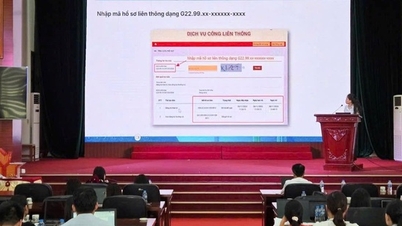

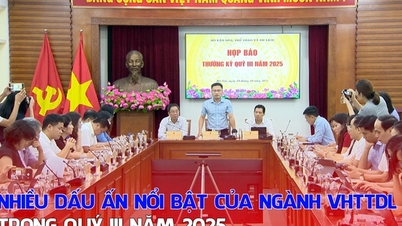





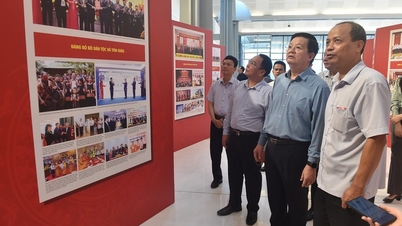






































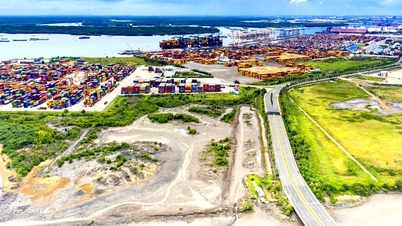
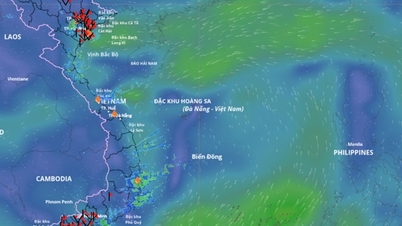








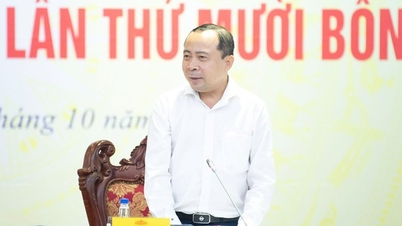
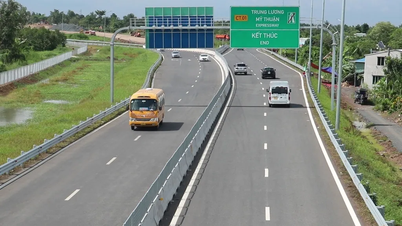




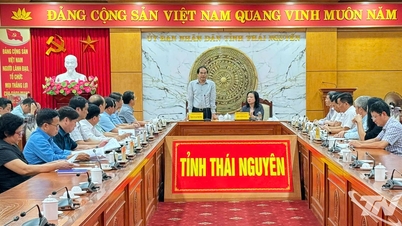


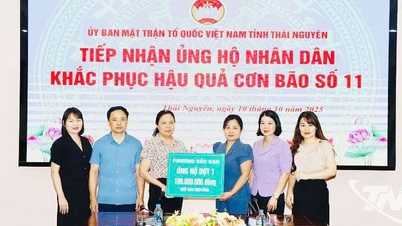















Comment (0)